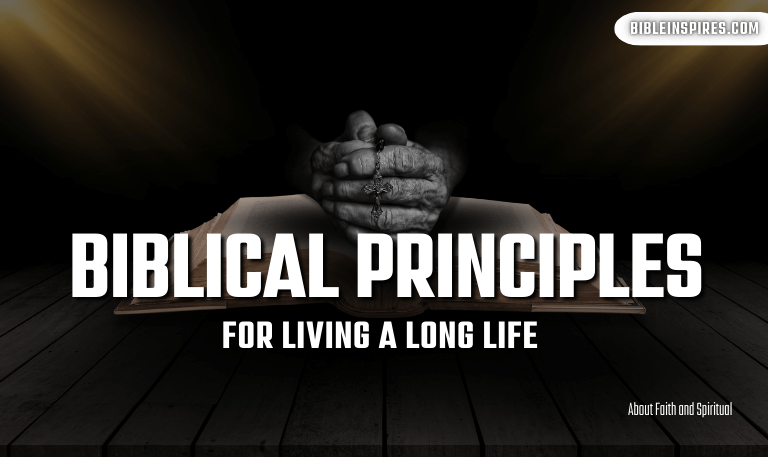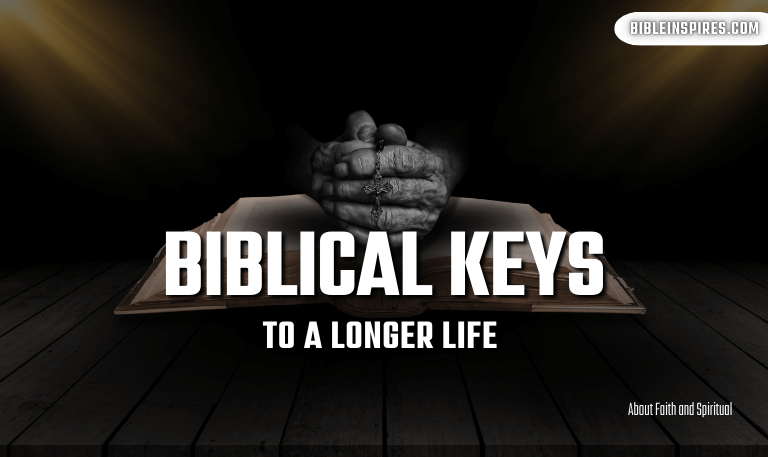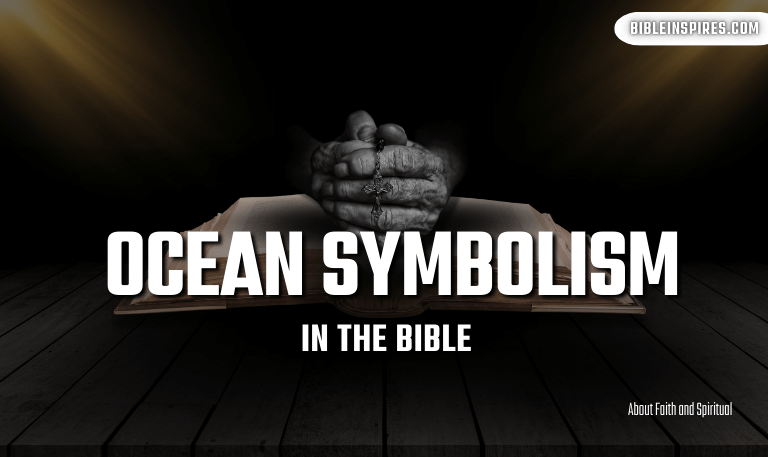Forgiveness is one of the most profound and powerful teachings in Christianity. The Bible, in its wisdom, outlines forgiveness not just as a moral imperative, but as a means of spiritual growth, healing, and peace. In this comprehensive guide, we will explore how to forgive according to the Bible, understanding the deeper meanings, challenges, and spiritual benefits associated with it. This article will serve as an authoritative resource on forgiveness in the Christian faith, drawing on key scripture, teachings of Jesus, and practical steps for applying forgiveness in everyday life.
The Importance of Forgiveness in Christianity
Forgiveness stands at the heart of Christian teachings, embodying the essence of God’s love, mercy, and grace. The Bible stresses the importance of forgiving others as a reflection of how God forgives us. But forgiveness is not merely a command; it is a transformative practice that leads to healing, peace, and spiritual maturity. In a world filled with conflict, misunderstandings, and betrayal, learning to forgive according to the Bible can be the key to both personal and relational growth.
What Does the Bible Say About Forgiveness?
The Bible offers numerous verses that highlight the necessity of forgiveness in the life of a believer. Forgiveness is presented as both an act of obedience and a powerful way to imitate Christ’s example.
Key Bible Verses on Forgiveness:
Ephesians 4:32 – “Be kind and compassionate to one another, forgiving each other, just as in Christ God forgave you.”
Matthew 6:14-15 – “For if you forgive other people when they sin against you, your heavenly Father will also forgive you. But if you do not forgive others their sins, your Father will not forgive your sins.”
![How to Forgive According to the Bible [2025 Guide] 6 How-to-Forgive-According-to-the-Bible](https://bibleinspires.com/wp-content/uploads/2025/04/How-to-Forgive-According-to-the-Bible.png)
Colossians 3:13 – “Bear with each other and forgive one another if any of you has a grievance against someone. Forgive as the Lord forgave you.”
These verses emphasize that forgiveness is not optional in the Christian life but is essential for experiencing the fullness of God’s forgiveness.
Read Also: Bible Verses About Forgiveness
The Teachings of Jesus on Forgiveness
Jesus’ teachings on forgiveness are revolutionary and countercultural, urging His followers to forgive even those who have wronged them deeply. In His ministry, Jesus not only taught the importance of forgiveness but modeled it perfectly.
Parable of the Unforgiving Servant (Matthew 18:21-35): In this well-known parable, Jesus tells of a servant who is forgiven a massive debt by his master but refuses to forgive a small debt owed to him by another. The parable illustrates the importance of extending forgiveness as God has forgiven us.
Jesus’ Example of Forgiving His Enemies:
Luke 23:34 – “Jesus said, ‘Father, forgive them, for they do not know what they are doing.'” Jesus exemplifies ultimate forgiveness, offering it even as He was being crucified. This powerful moment in Scripture reveals the depth of forgiveness that believers are called to demonstrate.
![How to Forgive According to the Bible [2025 Guide] 7 10-importance-of-forgiveness-in-the-bible](https://bibleinspires.com/wp-content/uploads/2025/04/10-importance-of-forgiveness-in-the-bible.png)
The Lord’s Prayer and Forgiveness
In the Lord’s Prayer, Jesus teaches His disciples to pray for forgiveness: “Forgive us our debts, as we forgive our debtors” (Matthew 6:12). This prayer is a profound reminder that forgiveness is both a petition and a practice. We ask for forgiveness from God while committing ourselves to forgive those who have wronged us.
This portion of the prayer reflects the reciprocal nature of forgiveness in the Christian faith – we are to forgive as we have been forgiven.
Why is Forgiveness Difficult?
Forgiveness can be incredibly difficult, especially when the pain caused by someone else feels unbearable. The emotional and psychological barriers to forgiveness are real, and they often include:
Resentment: Holding on to negative emotions can prevent forgiveness from taking place.
Fear of being hurt again: Some are afraid that forgiving others will make them vulnerable to further betrayal or harm.
Self-righteousness: Pride and the belief that we are justified in our anger can make it difficult to forgive.
The Bible addresses these feelings by urging believers to look beyond their own hurt and recognize that forgiveness is not about excusing the offense but releasing the burden of anger and bitterness.
Read Also: Bible Verses About Brotherhood and Love
The Power of Forgiveness in Healing
Forgiveness in the Bible is not just a spiritual act but also a path to emotional and relational healing. The act of forgiving others can bring:
Restoration of Peace: Forgiveness allows individuals to find peace, releasing anger and resentment.
Improvement in Relationships: Forgiveness restores broken relationships, fostering love and understanding.
Emotional Freedom: Holding on to unforgiveness can weigh heavily on one’s heart and mind. Letting go of bitterness brings emotional freedom.
Steps to Forgive According to the Bible
- Step 1: Acknowledge the Hurt: Recognize the pain caused by the offense and allow yourself to grieve. The Bible does not deny the reality of suffering.
- Step 2: Let Go of Resentment: Choose to release any desire for revenge or justice, trusting that God will handle the consequences (Romans 12:19).
- Step 3: Pray for the Offender: Praying for those who have wronged us helps soften our hearts. Jesus teaches us to bless those who curse us (Matthew 5:44).
- Step 4: Offer Grace, Not Condemnation: Forgiveness involves offering the same grace that God has given us, even when the other person doesn’t deserve it (Ephesians 4:32).
Forgiveness and Reconciliation: Are They the Same?
Forgiveness and reconciliation are often seen as synonymous, but the Bible makes a distinction between the two.
Forgiveness is the decision to let go of resentment and anger.
Reconciliation is the process of restoring a relationship to a state of harmony, and it may require the involvement of both parties.
Forgiveness is an individual act, but reconciliation requires both parties to be willing to work together toward restoration. The Bible encourages forgiveness, but reconciliation may not always be possible, especially when the offender is unrepentant (Matthew 18:15-17).
Forgiveness and God’s Love
God’s love and forgiveness are inseparable. The Bible teaches that God forgives us not because we deserve it, but because of His great love and mercy (Ephesians 2:4-5). When we forgive others, we reflect God’s love and mercy, demonstrating to the world the transformative power of His grace.
Forgiveness in the Old Testament
While forgiveness is central to the New Testament, the Old Testament also has important teachings on forgiveness. Notably, Joseph’s Forgiveness of His Brothers (Genesis 45) is a powerful story of reconciliation and forgiveness after betrayal.
Key Old Testament Verses on Forgiveness:
Psalm 103:12 – “As far as the east is from the west, so far has he removed our transgressions from us.”
Isaiah 43:25 – “I, even I, am he who blots out your transgressions, for my own sake, and remembers your sins no more.”
![How to Forgive According to the Bible [2025 Guide] 8 what-the-bible-says-about-forgiveness-and-letting-go](https://bibleinspires.com/wp-content/uploads/2025/04/what-the-bible-says-about-forgiveness-and-letting-go.png)
These verses emphasize God’s complete forgiveness of our sins and the importance of forgiving others.
Forgiveness in the New Testament
The New Testament takes forgiveness to a deeper level, focusing on forgiveness through the lens of Christ’s atoning work on the cross. The New Testament encourages believers to forgive as God forgives, emphasizing grace and mercy.
Key New Testament Teachings on Forgiveness:
Matthew 18:21-22 – Jesus teaches Peter to forgive seventy-seven times, signifying the boundless nature of forgiveness.
Luke 17:3-4 – “If your brother sins, rebuke him; and if he repents, forgive him.”
Read Also: Old Testament Examples of Disobedience
Forgiveness and Repentance
In the Bible, forgiveness is often connected to repentance. Repentance involves a change of heart and turning away from sin. While forgiveness can be granted unconditionally, reconciliation often requires genuine repentance from the offender (Acts 3:19).
What Happens If You Don’t Forgive?
Refusing to forgive others can lead to spiritual and emotional consequences. The Bible warns that those who do not forgive will not experience God’s forgiveness (Matthew 6:14-15). Holding on to unforgiveness can result in bitterness, broken relationships, and spiritual stagnation.
Forgiving Yourself: A Biblical Perspective
Self-forgiveness is often a struggle, especially when we are weighed down by guilt. The Bible teaches that God’s forgiveness extends to all who repent and believe. Embracing God’s forgiveness allows believers to forgive themselves and move forward in faith (1 John 1:9).
Forgiveness and Personal Transformation
Forgiveness is transformative. When we forgive, we not only release others from their debts but also release ourselves from the burden of bitterness. Forgiveness leads to personal growth, fostering humility, empathy, and peace.
Forgiveness and the Holy Spirit
The Holy Spirit empowers believers to forgive. It is through the Holy Spirit that we are able to extend forgiveness beyond our natural capacity. As we lean on the Spirit, we are able to forgive as Christ forgave us (Galatians 5:22-23).
Forgiveness and Love: A Biblical Connection
Love is the foundation of forgiveness. The Bible teaches that love covers a multitude of sins (1 Peter 4:8). Forgiveness is an act of love, and through forgiving, we show the world that we are disciples of Christ.
Forgiveness in Difficult Situations
Forgiving those who have hurt us deeply is perhaps the most challenging aspect of forgiveness. However, the Bible teaches that even in the most difficult circumstances, forgiveness is possible. Jesus’ example on the cross shows us that forgiveness is not dependent on the actions of others but on the state of our own hearts.
Read Also: Bible Verses About Disobedience
How to Ask for Forgiveness According to the Bible
Asking for forgiveness requires humility and sincerity. In Matthew 5:23-24, Jesus instructs us to reconcile with others before offering our gift at the altar. Repentance involves acknowledging our wrongdoing, seeking forgiveness, and making amends where possible.
How to Forgive According to the Bible FAQs
Q: Can I Forgive Someone and Still Feel Hurt?
A: Yes. Forgiveness is an act of the will, not an emotional state. You may still feel hurt, but forgiveness allows you to release the hold that resentment has on your heart.
Q: How Many Times Should I Forgive Someone?
A: Jesus teaches that we should forgive seventy-seven times (Matthew 18:22), meaning forgiveness is limitless and should be offered continually.
Q: Does Forgiveness Mean Forgetting?
A: Forgiveness does not mean forgetting the offense but choosing to let go of the anger and desire for revenge. God’s forgiveness does not erase the memory but restores the relationship.
Conclusion
Forgiveness is an essential element of the Christian faith, and the Bible provides clear guidance on how to forgive others and experience peace. Whether you’re struggling with forgiving someone or seeking to understand God’s forgiveness more deeply, the biblical principles outlined above can guide you on your journey. May the peace of God fill your heart as you embrace the power of forgiveness in your life.
![How to Forgive According to the Bible [2025 Guide] 4 How-to-Forgive-According-to-the-Bible-[2025-Guide]](https://bibleinspires.com/wp-content/uploads/2025/04/How-to-Forgive-According-to-the-Bible-2025-Guide.png)


